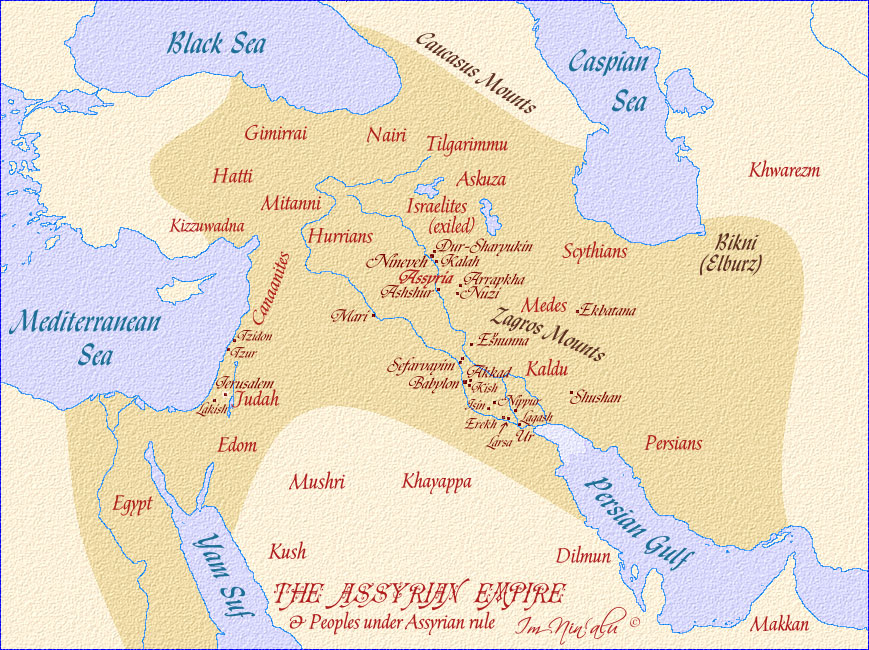Joel Richardson
Note: The article below is an older article, which after having been transferred to my upgraded web-site platform, has various editing issues. A newer, more simple article, without the formatting issues, can be read here.
The purpose of this article is to begin addressing what has in recent years become a very widely-held theory regarding Psalm 83 and the Battle of Gog and Magog. This theory holds that the Bible predicts at least three specific future invasions of the Nation of Israel. The first of these invasions, it is held, is described in Psalm 83. The second invasion, most commonly referred to as the Battle of Gog and Magog is detailed in Ezekiel 38, 39 (Where it is actually Gog of Magog rather than Gog and Magog as in Revelation 20). After these two invasions, it is held that we will see yet another invasion of Israel led by the Antichrist and his armies. This last of the three invasions most refer to as the Battle of Armageddon. So in summary, this popular theory holds that three distinct invasions of Israel will occur in the following order:
1. The Psalm 83 Invasion of Israel (Psalm 83)
2. The Gog Magog Invasion of Israel (Ezekiel 38,39)
3. The Antichrist Invasion of Israel (Revelation 16,19)
The Basis for the Multiple-Invasion Theory
The most significant reason that so many believe this theory is because each of these various passages contains certain details that the other passages do not. So for instance, among the invading nations, Psalm 83 lists several nations that are not mentioned in Ezekiel 38, 39. Thus it is reasoned that these two passages must be speaking of two separate invasions.
In the opinion of this author, this reasoning is flawed. What proponents of this theory fail to consider are the numerous similarities contained within these passages. Consider for example if this method of interpretation were applied to the Gospels where various tellings of the same events contain different, and even seemingly contradictory details.
The first principle that I think many who hold to the multiple-invasion theory miss is the fact that all Biblical prophecy is entirely Messiah-centric and Day-of-the-Lord-centric. It is telling a family simple story that revolves round the return of Jesus. The Bible is not a pan-historical prophecy sourcebook. It has a central focus, a singular emphasis. While some may look to the Bible to find things such as the assassination of President Kennedy or the World Trade Center attacks, these things are not the focus of the Biblical prophets. Many look to the Bible in the same way that some look to the prophecies of Nostrodamus. This is serious error.
The primary focus and prophetic burden of all of the prophets is the return of the Messiah and the events that surround His coming. In easy-to-understand terms, all of the Biblical prophets, although each one speaking through the diverse circumstances and events of his day, are ultimately prophesying and pointing us to the Day of the Lord and the Messianic Kingdom that follows.
Now, going back to Psalm 83 and Ezekiel 38-39; while these passages do contain surface differences, these can be understood as the natural result of the diverse historical circumstances through which each of the various prophets was prophesying. The prophets would most often use an event that was taking place within proximity of his lifetime and speak through this event, ultimately pointing to the Day of the Lord. If we compare the similarities of the nations involved in these two passages, then this becomes all the more apparent. While one passage may emphasize some nations over the others, in the final analysis, it is far more likely that we are looking at the same invasion.
First, lets look at the actual nations delineated in Psalm 83. The specific names used are:
ՠEdom
ՠThe Ishmaelites
ՠMoab
ՠThe Hagrites
ՠGebal
ՠAmmon
ՠAmalek
ՠPhilistia
ՠTyre
ՠAssyria
According to Bill Salus, author of the book, Isralestine, this invasion / war will include:
Hezbollah, Syria, Hamas and the Palestinians along with Egyptians, Saudis, and Jordanians.
I would largely agree with Bill. However, Psalm 83 does not include Egypt. See article here. But I would add that it is quite possible that beyond these nations and groups, many others should be included.
Assyria
First, because of the presence of Assyria in the list, we have to consider the possibility of a few other nations beyond those mentioned by Salus. Modern conservative scholarship holds that Psalm 83 was written sometime between the 9th to 7th centuries B.C. During this period, the Assyrian Empire included substantial portions of what has come to become the nations of Turkey, Iran, Kuwait, Azerbaijan, Armenia, and Georgia. As such we should certainly consider the possible inclusion of these nations as well.
See the following map of Assyria:

The Ishmaelites
Beyond this, there is another important name listed among the invaders: The Ishmaelites. The general term Ishmaelites is likely a general reference to the greater Arab peoples rather than any specific nation or smaller region. Biblically speaking, the Ishmaelites occupied large territories. This would have been true in ancient times, and is even truer today. Ultimately this passage is pointing us to the last days. Today, the Ishmaelites have grown to become a vast people group even as the Bible predicted they would all the way back in Genesis:
And the angel of the LORD said unto her (Hagar), I will multiply thy seed exceedingly, that it shall not be numbered for multitude. Genesis 16:10
ԁnd as for Ishmael, I have heard thee: Behold, I have blessed him, and will make him fruitful, and will multiply him exceedingly; twelve princes shall he beget, and I will make him a great nation. Genesis 17:20
Arise, lift up the lad, and hold him in thine hand; for I will make him a great nation. Genesis 21:18
Today the territory of Ishmael ranges from the Arabian Peninsula to northern Africa, including Sudan, Libya, Tunisia, Morocco, Algeria, Mauritania and several others nations.
The point is that if we include this more accurate definition expanded of Assyria and the Ishmaelites, the nations and peoples mentioned in Psalm 83 point us to an invasion that would be far more substantial than one only involving the nations that immediately surround Israel. Instead we would be looking at the following modern nations and peoples:
ՠThe greater Arab world, (from the Arabian Peninsula to northern Africa)
ՠSaudi Arabia, Bahrain, UAE, Oman, Yemen, Kuwait, Qatar
ՠLibya, Sudan, Algeria, Morocco, Tunisia, etc.
ՠSyria
ՠJordan
ՠEgypt
ՠLebanon
ՠThe Palestinians (West Bank and Gaza)
ՠIraq
ՠTurkey
ՠIran
ՠPerhaps Armenia, Azerbaijan and Georgia
Comparing the nations of Psalm 83 to Ezekiel 38-39
Now let’s compare this list of nations with the nations mentioned in Ezekiel 38-39. Listed in the text are the following names:
ՠGog: The Leader of the Coalition
ՠMagog: The Land of Gog
(ՠSome believe Rosh is also a proper name)
ՠMeshech
ՠTubal
ՠGomer
ՠTogormah
ՠPersia
ՠPut
“many nations with you.”
By consulting a wide range of Atlases, Commentaries, Encyclopedias, and Dictionaries of the Bible as well as several studies conducted by various Bible prophecy teachers, we can conclude that these names are pointing us to the following modern nations:
ՠMagog: Turkey
I believe that between these two options, Turkey is a far more likely solution ultimately resolving the linguistic tension of the passage.
ՠRosh:
Could be Russia, Ukraine, Italy, or Iran
I am of the opinion that the use of Rosh in this passage should be used as it is consistently throughout the Bible and simply be translated as chiefԬ rather than seeing this word as a proper noun.
ՠMeshech:
Turkey
ՠTubal:
Turkey
Gomer:
Central Turkey, Syria
ՠBeth Togarmah
Southeastern Turkey, Armenia, Azerbaijan, Georgia, Iran, Iraq, Syria
ՠPersia:
Iran, Iraq, Syria, Afghanistan, Pakistan
ՠCush:
Sudan
Could also include: Ethiopia /Somalia / Djibouti
ՠPut:
Libya
Could also include: Tunisia, Algeria, Morocco
ՠLastly, and perhaps most importantly, the inclusion in the passage of the phrase, “and many nations with you” obviously throws the doors wide open for any number of other nations to be included in this invasion as well. In the final assessment, while several nations are not included in both prophecies, far more are. Beyond this, the open-ended phrase in Ezekiel and many nations with you leaves the door open for the involvement of any of the nations mentioned in Psalm 83.
Because the primary basis for the multiple-invasion theory is founded on the differences between these two passages, after having examined these differences in some detail, I believe it is impossible to say with any certainty that these two prophecies are two distinct invasions. Humility requires that we refrain from forming dogmatic opinions on this subject. Let the watchmen (and women) continue to watch and pray.



2 Responses
Joel,
I agree with your findings. I was born again in 1983, My directive from the Holy Spirit over the years is that this great battle is the last one. Even though we have had major conflicts and wars, and will continue. Psalm 83 and Ezekiel 38 are describing the battle of Armageddon.